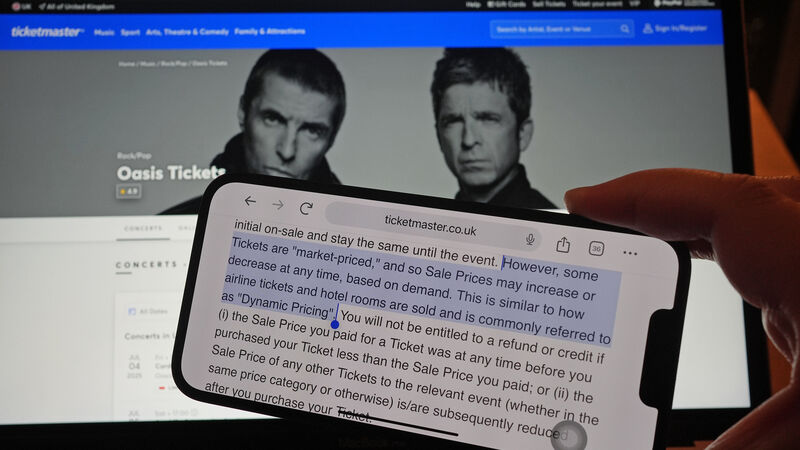Ticketmaster to change pricing information after probe into Oasis tickets row

Fans are to be told the range of prices for concert tickets when they join a queue, and be informed when the cheaper seats sell out, through regular updates under new commitments from Ticketmaster.
Buyers will also be told at least 24 hours before a sale begins if tiered pricing will be used and what that means, Britain's Competition and Markets Authority (CMA) has said.











